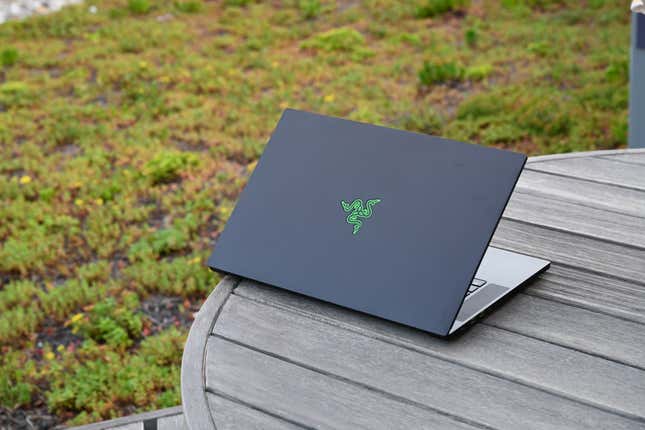
There’s no way to sugarcoat it: Buying gadgets this year has been a nightmare. Products are out of stock, bots are reselling them at exorbitant markups, and there is no firm timeline for when the chip shortage—the major cause of this entire disaster—will improve.
We now know that, for the laptop industry, things will get worse before they get better. In a refreshingly candid move, Razer CEO Min-Liang Tan tweeted that Razer’s next-gen gaming laptop will be more expensive due to “significant increases” to the price of components.
Razer already sells some of the most expensive consumer and gaming laptops you can buy, with models like the Stealth 13 starting at $1,299 and the Blade 17 going up to $3,699. It’s not hard to envision a future where some Razer Blade configurations cost more than $4,000. Tan didn’t specify the magnitude of this price increase, but we expect to find out early next year: Razer is expected to showcase its upcoming laptop lineup after a rumored CES 2022 reveal.
We can assume these component costs aren’t exclusive to Razer considering laptops from different OEMs use the same core components: Intel and AMD processors, Nvidia graphics cards, and Samsung SSDs are some examples. On that note, laptop makers are expected to start shipping devices powered by Intel’s new Alder Lake 12th-gen mobile processors following CES 2022 in early January.

At the same time, AMD is rumored to launch Rembrandt APUs (Ryzen 6000) and Nvidia will debut the GeForce RTX 3080 Ti GPU. Given the current chip shortage caused by the ongoing covid-19 pandemic, manufacturing costs for some of these components could be higher than normal.
But processors and graphics cards aren’t the only culprits that could cause problems. Memory, specifically DDR5 RAM, SSD storage, and various other components, could be contributing to the inflated prices. We may be reading too deep into the lines here, but Tan specified “gaming laptop” when talking about the price jump, but didn’t mention the non-gaming Razer Book. It’s possible only gaming machines will be affected because the components in question are purpose-built for those devices (a discrete GPU, for example).
We’ve reached out to a few other laptop vendors to get some answers and will update this article if we learn anything more.
Some companies will be better equipped to absorb the higher component costs than others to keep their laptops competitively priced. Regardless, we suggest anyone in the market for a next-gen gaming laptop should start budgeting for the worst.